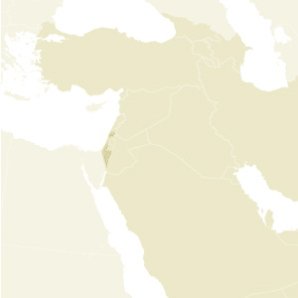The final surprise of the politically successful” career of Ariel Sharon is the debut of Ehud Olmert. Suddenly, the latter has become the President of the Israeli government and he is likely to quite soon become the leader of the Kadima party as well.
The political history of Olmert, who grew up in the arms of the Israeli right wing, has shown that this man does not hide his extremist trends. On the other hand, during the 70s, he strongly rejected the proposal to return some occupied territories to the Palestinians. In his opinion, the right to occupation, practiced by the Hebrew State, is undeniable. Similarly, he rejected the political solution of the Israeli-Palestinian conflict, thus showing his hatred towards the Arab people. As the mayor of Jerusalem, Ehud tried to marginalize the Arabian part of the city, by creating an infrastructure with “Zionist” characteristics.
The man is famous because of his contradictory political alliances. He established different alliances with various Israeli political figures, before betting for Sharon. The two of them have shown, during the last few years that they share the same vision. This was confirmed when a common agreement on the unilateral withdrawal from Gaza was signed. Sharon used several times his friend Olmert to find out the reactions from other political parties. This was the case before the vote for the project “route map” by the Israeli government. Ehud was one of the first to join Sharon in his new party, thus showing his absolute loyalty. According to some experts, his economic and social vision does not differ much from that of Benjamín Netanyahu. As for his political convictions, they are very close to those of Amir Peretz, the leader of the Labour Party.
Up to what extend will Olmert be able to reunite around him opposite personalities that make up the new “Kadima” party? Does he really have Sharon’s charisma which would enable him to again convince the Israelis that kept Sharon’s political direction? Olmert will need miracles to lead his country during this period so sensitive in the history of the region.
“إيهود أولمرت المتقلّب”, by Rendah Haidar, Annahar, January 9, 2006.
 Articles by this author
Articles by this author











Stay In Touch
Follow us on social networks
Subscribe to weekly newsletter